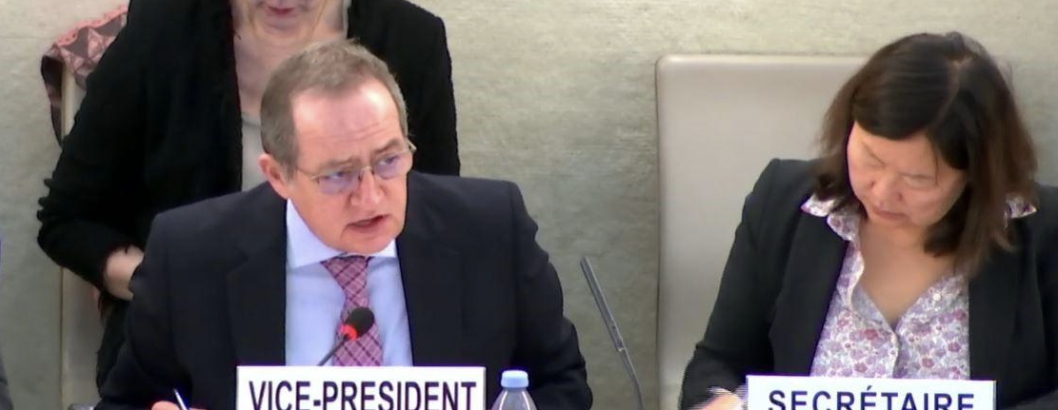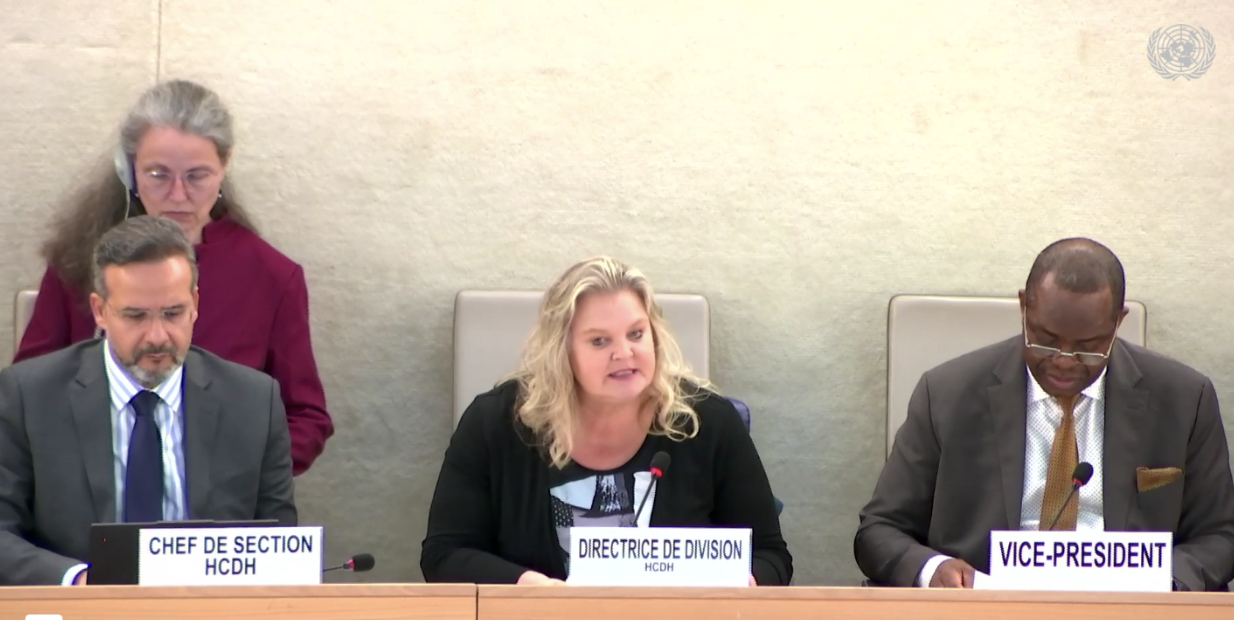By Isabelle Despicht / GICJ
On Thursday, 27 January 2022, UN Agencies reported the existence of 20 ‘’hunger hotspots’’, characterised by conflict, economic instability, natural disasters, political unrest and restricted access to humanitarian aid. These challenging circumstances dangerously affect the livelihoods of these regions’ inhabitants. [1]
In particular, the populations in Ethiopia, Nigeria, South Sudan and Yemen face an aggravated risk of starvation and even death, as determined by a recent report of the World Food Programme (WFP) and the Food and Agriculture Organization (FAO). The findings classified Ethiopia, Nigeria, South Sudan and Yemen in IPC Phase 5, the maximum risk of famine classification on the IPC standardised scale measuring the severity of acute food insecurity. [2]
 The study conducted by the WFP and the FAO draws attention to the intricate relationship between conflict and hunger. The strong correlation between the two can be illustrated by the WFP's major activity in regions affected by hostilities. Political unrest and war displace its population, which face no other choice than to rely on humanitarian aid.
The study conducted by the WFP and the FAO draws attention to the intricate relationship between conflict and hunger. The strong correlation between the two can be illustrated by the WFP's major activity in regions affected by hostilities. Political unrest and war displace its population, which face no other choice than to rely on humanitarian aid.
Although the concern is already troubling in the hotspots mentioned above, the UN states that these trends are likely to extend to other countries such as Myanmar, the Central African Republic, the Democratic Republic of the Congo, Central Sahel, Sudan, South Sudan, Somalia, the northern parts of Ethiopia, Nigeria and Mozambique.
Apart from conflict, inanition has further been accentuated by the climate crisis, which is, according to the WFP and the FAO, ‘’no longer a glimpse into the future, but the daily reality for communities around the world’’. The impact of climate change on food security is already apparent in Haiti, Eastern Africa, Madagascar, Mozambique, and more recently, in Afghanistan’s western region of Badghis. [3]
Furthermore, while post-pandemic economic issues persist, rising food costs pose an additional challenge. Since May 2020, global food prices have been steadily increasing, with Near East, North Africa, and Central and Eastern Asia considered particularly at risk.
Taking the example of South Sudan, the circumstances surrounding the COVID-19 pandemic have worsened the situation for its communities, which also had to withstand other major events such as flooding, widespread displacement, and damage to agricultural property, effectively threatening their livelihoods.
By the same token, Nigeria’s inflation has exacerbated extreme food insecurity, notably in its conflict-affected Borno State. The UN stressed that if humanitarian efforts in the region do not persist, its population could slide into severe malnourishment.
As for Ethiopia, the absence of updates since the predictions of famine-like conditions for July to September 2021 that 401,000 people faced in the Tigray region is considered worrisome by UN agencies.
Yemen is also subject to extreme food insecurity due to a mix of conflict and economic recession, as scarce foreign currency reserves have made it difficult for the country to import food. Although humanitarian assistance has helped stabilise food security levels between April and July 2021, indicators demonstrate the contrary for the subsequent semester.
In a similar fashion, the Horn of Africa is currently witnessing its third consecutive season of drought. Estimations also stipulate that food insecurity is about to rise in the Sahel region, where the lack of rain has had a severe effect on crops.
Other regions affected include Afghanistan, which faces the risk of reaching an IPC Phase 5 if the crisis is not contained. The situation is already devastating, with Afghan people selling their belongings, and even parts of their own bodies, in order to get food. [4]
Today, over 34 million people worldwide face an emergency level of acute hunger, corresponding to IPC Phase 4, and this number is set to grow in the future. QU Dongyu, Director-General of the FAO, reiterated: "The magnitude of suffering is alarming. It is incumbent upon all of us to act now and to act fast to save lives, safeguard livelihoods and prevent the worst situation".
Geneva International Centre for Justice (GICJ) is gravely concerned by the state of world hunger. We urge political leaders and the international community to come together and maintain humanitarian assistance in the regions that face an acute risk of famine. Climate change and conflict being inherently linked to food insecurity, GICJ emphasises the need for a stronger international commitment towards the climate goals and their achievement as well as a strengthened international commitment to the prevention of conflict. We urge governments to act immediately to contain this urgent humanitarian crisis, as the already acute situation of food insecurity is likely to affect more countries in the future.
Justice, Human Rights, Geneva, geneva4justice, GICJ, Geneva International Centre For Justice
[1] https://news.un.org/en/story/2022/01/1110742
[2] https://www.ipcinfo.org/ipcinfo-website/resources/resources-details/en/c/1129202/
[3] https://www.fao.org/news/story/en/item/1382490/icode/
[4] https://www.euronews.com/2022/01/12/extreme-poverty-drives-afghans-to-sell-vital-organs-to-feed-families












